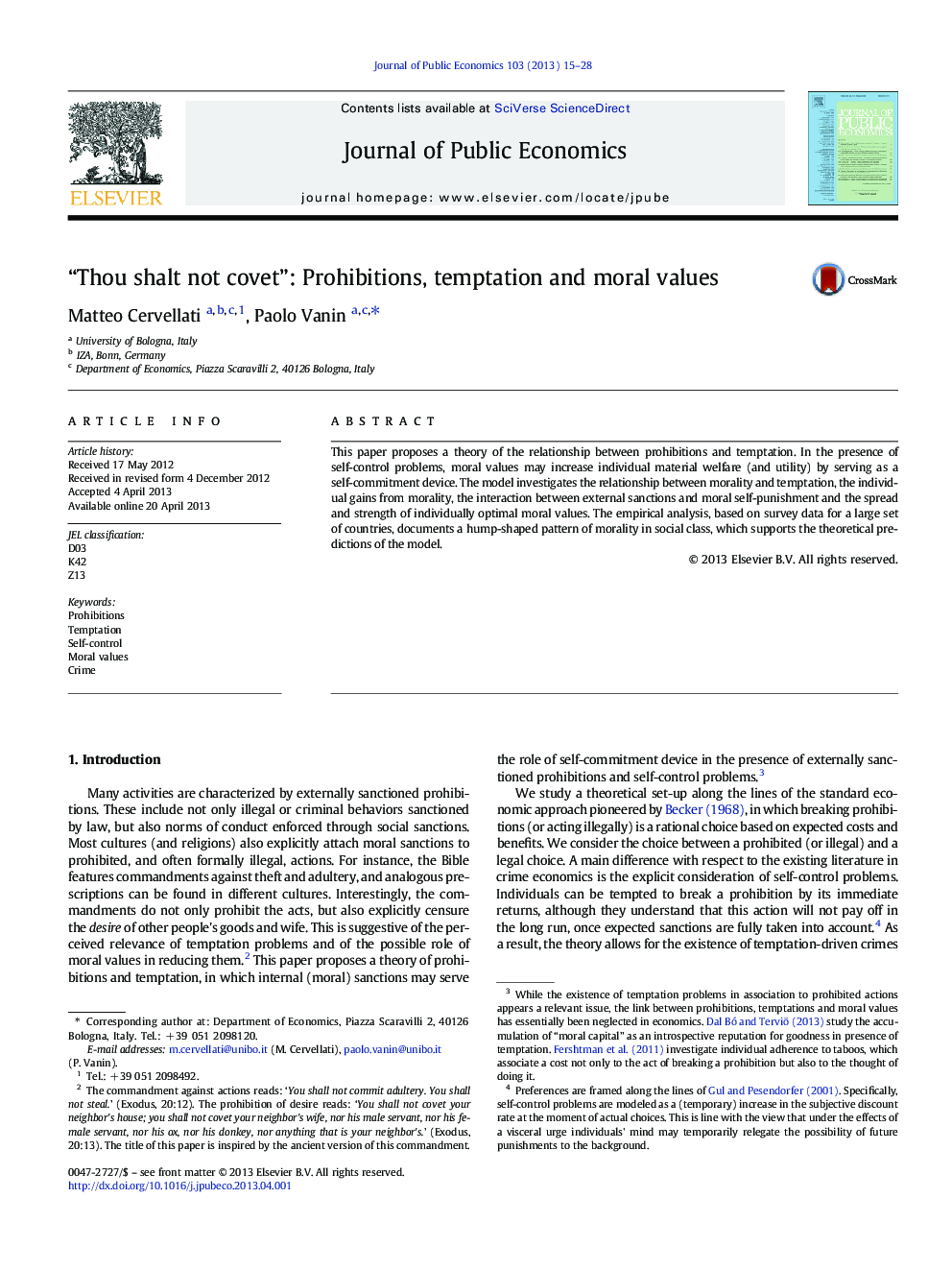| کد مقاله | کد نشریه | سال انتشار | مقاله انگلیسی | نسخه تمام متن |
|---|---|---|---|---|
| 969837 | 1479454 | 2013 | 14 صفحه PDF | دانلود رایگان |

• We propose a theory of the relationship between prohibitions and temptation.
• In the presence of temptation, moral values may serve as a self-commitment device.
• The theory predicts a non-monotonic pattern of individually optimal moral values.
• The empirical analysis supports this prediction.
This paper proposes a theory of the relationship between prohibitions and temptation. In the presence of self-control problems, moral values may increase individual material welfare (and utility) by serving as a self-commitment device. The model investigates the relationship between morality and temptation, the individual gains from morality, the interaction between external sanctions and moral self-punishment and the spread and strength of individually optimal moral values. The empirical analysis, based on survey data for a large set of countries, documents a hump-shaped pattern of morality in social class, which supports the theoretical predictions of the model.
Journal: Journal of Public Economics - Volume 103, July 2013, Pages 15–28